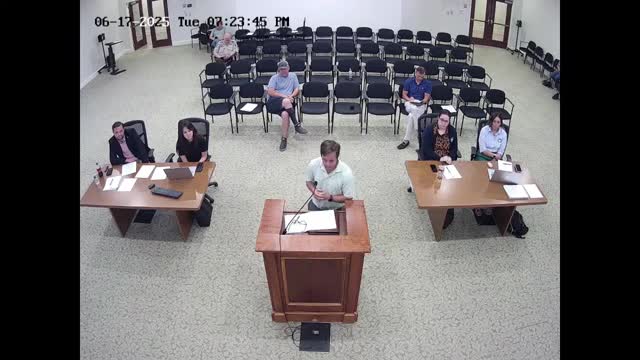Residents Express Concerns Over Subdivision Impact on Local Infrastructure and Environment
June 20, 2025 | Bryan County, Georgia
Thanks to Scribe from Workplace AI , all articles about Georgia are free for you to enjoy throughout 2025!

This article was created by AI using a video recording of the meeting. It summarizes the key points discussed, but for full details and context, please refer to the video of the full meeting. Link to Full Meeting
At the center of the discussion was Consolidated Utilities, the private company responsible for managing water and sewer services in the area. As the developer prepares to install infrastructure, questions arose about who would maintain it once the subdivision is complete. The company assured attendees that they would handle operations and maintenance, but residents remained skeptical about the long-term implications for their community.
Dawn Poe, a local resident, passionately expressed her fears about stormwater runoff from the new development. Living at the southern end of the proposed site, she described how heavy rains already flood her property, and she worried that additional runoff would exacerbate the problem. “My entire property floods,” she lamented, highlighting the potential for increased flooding and environmental degradation.
Poe also raised concerns about the impact on local roads, particularly Page Road, which is currently unpaved and heavily trafficked. She noted that the addition of 144 homes could lead to a significant increase in daily trips, further deteriorating the already poor condition of the road. “It’s very hard to leave our own house sometimes because of how bad the condition of the road is,” she stated, calling for a reevaluation of the development's impact on local infrastructure.
The meeting also touched on broader issues of land use and community planning. Poe, who had previously participated in the Unified Development Ordinance (UDO) committee, criticized the lack of green space preservation in the face of rapid development. “At some point, we have to say stop and just actually take a second and look at what we’re doing to that county,” she urged, reflecting a growing sentiment among residents who feel their agricultural heritage is being overshadowed by industrial growth.
As the meeting progressed, the Planning and Zoning Commission sought to clarify their role in the approval process. They emphasized that their primary responsibility was to determine whether the proposed sketch plat met the technical requirements of the UDO, rather than making final decisions on growth. This distinction left some residents feeling powerless, as they grappled with the rapid changes to their community.
The discussions at the Bryan County Planning and Zoning meeting highlighted a community at a crossroads, balancing the need for development with the desire to preserve the character and environment of their rural home. As the meeting concluded, it was clear that the voices of residents like Dawn Poe would continue to resonate in the ongoing dialogue about the future of Bryan County.
Converted from Bryan County Planning & Zoning Meeting June 17, 2025 meeting on June 20, 2025
Link to Full Meeting
Comments
View full meeting
This article is based on a recent meeting—watch the full video and explore the complete transcript for deeper insights into the discussion.
View full meeting
